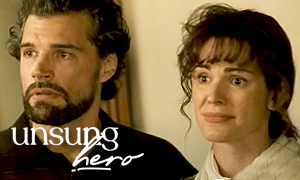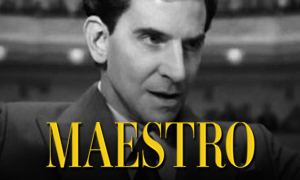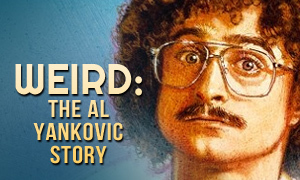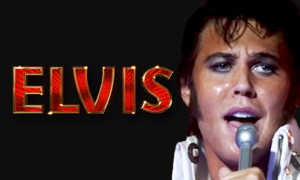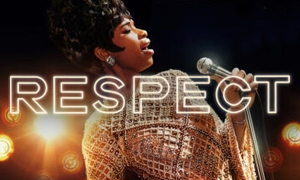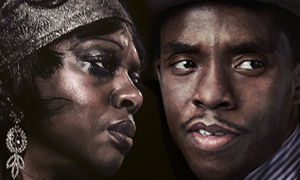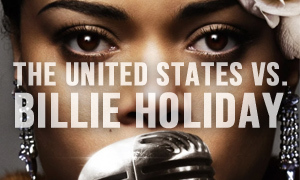Maestro: History vs. Hollywood
Bradley Cooper
Born: January 5, 1975
Birthplace:
Philadelphia, Pennsylvania, USA
Leonard Bernstein
Born: August 25, 1918
Birthplace: Lawrence, Massachusetts, USA
Death: October 14, 1990, New York City, USA (heart attack from lung failure due to mesothelioma)
Bio: American Conductor and Composer
Carey Mulligan
Born: May 28, 1985
Birthplace:
Westminster, London, England, UK
Felicia Montealegre Bernstein
Born: February 6, 1922
Birthplace: San José, Costa Rica
Death: June 16, 1978, East Hampton, New York, USA (lung cancer)
Bio: Leonard Bernstein's Wife
Matt Bomer
Born: October 11, 1977
Birthplace:
Webster Groves, Missouri, USA
David Oppenheim
Born: April 13, 1922
Birthplace: Detroit, Michigan, USA
Death: November 14, 2007, New York City, USA
Bio: Clarinetist, Producer, and Close Friend of Bernstein
Sarah Silverman
Born: December 1, 1970
Birthplace:
Bedford, New Hampshire, USA
Shirley Bernstein
Born: October 3, 1923
Birthplace: Lawrence, Massachusetts, USA
Death: May 20, 1998, Manhattan, New York, USA
Bio: Leonard's Sister
Maya Hawke
Born: July 8, 1998
Birthplace:
New York City, USA
Jamie Bernstein
Born: 1952
Birthplace: New York City, USA
Bio: Leonard Bernstein's Eldest Daughter
Did Leonard Bernstein's career take off after stepping in as a substitute conductor at Carnegie Hall?
Yes. The true story behind Maestro confirms that when the scheduled conductor at Carnegie Hall fell ill prior to a performance in 1943, the assistant conductor, Bernstein, was asked to step in at the last minute. Then 25, he took the stage the same evening with no rehearsal. He delivered a mesmerizing performance, and his career began to skyrocket.
As with his personal life, he found himself torn in two directions professionally as well. He was passionate about both conducting and composing. The former came naturally to him while the latter was agonizingly difficult. Yet, he considered composing to be his most vital creative pursuit. As a composer, his most significant contribution was the 1957 Broadway hit West Side Story, which was later adapted into two feature films, the most recent being the 2021 adaptation directed by Steven Spielberg, who also served as a producer on Bradley Cooper's Leonard Bernstein movie Maestro.
Did Leonard Bernstein meet Felicia Montealegre at a party?
Yes. Similar to the movie, a Maestro fact-check confirms that they met at a party in 1946. Their letters indicate that they indeed had a rocky start to their relationship. That summer, after being hurt that Bernstein failed to say goodbye to her when he left for a trip to London, Felicia wrote, "You see, dear, even though I know you are terribly busy and 'confused,' I still halfheartedly hope you’ll remember my existence without me forever reminding you."
Was Felicia aware of Leonard Bernstein's bisexuality prior to marrying him?
Yes. By the time of their marriage in 1951, Bernstein had already had a number of affairs and sexual dalliances with men, dating back to when he was a student at Harvard. It was then that he entered into an affair with his mentor, conductor Dimitri Mitropoulos. He also became involved with composer Aaron Copland. In 1948, just three years before he married Felicia, he had a romance with a young Israeli soldier named Azariah Rapoport. "I can't quite believe that I should have found all the things I've wanted rolled into one," he wrote of his time with Rapoport. "It's a hell of an experience – nerve-racking and guts-tearing and wonderful. It's changed everything."
According to TIME, Bernstein met Costa Rican-Chilean actress Felicia Montealegre in 1946. They were engaged for nearly a year before he broke it off when he told her he was a homosexual. However, they were still drawn to each other and ended up marrying five years later under the condition that he not make a fool of her publicly. In Humphrey Burton's biography Leonard Bernstein, which he wrote with access to the family, he states that Felicia believed she could "change" Bernstein since he slept with both men and women and not men exclusively.
In a letter from Israel to his sister Shirley in 1950, the year before he wed Felicia, Bernstein wrote, "I have been engaged in an imaginary life with Felicia, having her by my side on the beach as a shockingly beautiful Yemenite boy passes."
"She knew exactly what the deal was," daughter Jamie Bernstein told CBS Sunday Morning of her mother's knowledge of her father's sexuality.
While the children and others who knew him say that he did love Felicia, Bernstein also viewed the marriage as a way to quell rumors he was gay, which could have affected his professional life as a conductor given the time period.
Did Leonard Bernstein have multiple affairs with men during his marriage?
Yes. In researching the question, "Is Maestro accurate?" we learned that in the years after his 1951 marriage to actress Felicia Montealegre (portrayed by Carey Mulligan), Bernstein entered into multiple affairs with both men and women. He continued to have relationships with men up until his death in 1990.
How many children did Leonard Bernstein and his wife Felicia have?
As depicted in Bradley Cooper's Netflix film, the Maestro true story reveals that Leonard and Felicia Bernstein had three children: Jamie (1952), Alexander (1955), and Nina (1962).
Did Leonard Bernstein's daughter ask him if the rumors about his sexuality were true?
Yes. As the years wore on, Leonard became less discreet about his affairs with men, which had been his wife's one request. According to a CBS Sunday Morning interview with Leonard Bernstein's children shortly before Maestro premiered in theaters, his daughter Jamie confirmed that she indeed asked him if the rumors about his sexuality were true. Like in the film, he lied to her and told her they were not. Jamie is portrayed by Maya Hawke in the movie.
"My mother was a fairly conventional lady and so she expected to be treated like one," daughter Nina told The Times of London in 2010. "The deal was that he would be discreet and that she would maintain her dignity." However, Leonard broke their agreement.
Did Leonard Bernstein's homosexuality take a toll on his wife Felicia?
Yes. According to Leonard's daughter Jamie's 2018 memoir Famous Father Girl: A Memoir of Growing Up Bernstein, her mother wrote to her father shortly after their wedding, telling him, "You are a homosexual and may never change — you don't admit to the possibility of a double life, but if your peace of mind, your health, your whole nervous system depend on a certain sexual pattern what can you do? ... I'm willing to accept you as you are without being a martyr and sacrificing myself on the L.B. altar." However, in her memoir, Jamie writes that her mother did just that. "That's how I feel," she told CBS Sunday Morning. "I feel like it cost her everything to stick with it. It was really tough for her, and I think it contributed to her early death in a way."
Felicia's letter to Leonard also stated that she would allow him to do as he pleased "without guilt and confession," a sentiment she repeats in the movie. She wrote, "Our marriage is not based on passion but on tenderness and mutual respect." Their arrangement gave Leonard the freedom to do what he wanted, but it ended up taking a significant toll on their marriage, especially Felicia. This letter and others can be read on the Library of Congress website.
Felicia Montealegre Bernstein died of lung cancer in 1978 at age 56. She and Leonard had been married for 26 years.
Did Leonard Bernstein leave his wife Felicia to live with a man?
Yes. A Maestro fact vs. fiction analysis reveals that this happened in 1976, two years before Felicia's death. Bernstein decided to no longer hide his homosexuality and left his wife Felicia for a period of time to live with a young music scholar named Tom Cothran, whom he had met and fell for in 1971. Felicia did not like Cothran, in part because Bernstein had claimed that Cothran was his best friend, not her. According to Biography, she told her husband that he was "going to die a bitter and lonely old man." Some sources report the quote as being "a bitter and lonely old queen," the version heard in the movie.
Despite the turmoil she was in with Bernstein, she joined him that year to narrate his holiday concert at Carnegie Hall (they had been booked long before the upheaval in their personal lives). At the end of the concert, Bernstein was handed an enormous bouquet of a hundred red roses. He walked across the stage to hand them to Felicia, but as he tried to, she abruptly turned and walked off the stage. The bouquet hit the stage with an audible thump and the audience reacted with a gasp. Bernstein was dejected and inconsolable, but he continued with his plan to spend six months in Paris with Tom Cothran.
A heavy smoker for much of her life, Felicia had been diagnosed with lung cancer not long after their separation and Bernstein moved back in with her after he learned of her illness. He cared for her until her passing on June 16, 1978. Guilt-ridden, he never entered back into his relationship with Cothran, but the two stayed friends until Cothran succumbed to AIDS in 1987. In his biography, Humphrey Burton wrote that Bernstein's "sense of guilt never left him" and he never recovered from the loss of Felicia.
Was Maestro filmed in Leonard Bernstein's real-life home?
Yes. Bernstein's children allowed Bradley Cooper to film scenes in the family's country house in Fairfield, Connecticut. Cooper, who also stars in the film, borrowed the legendary conductor's bathrobe to wear in the movie.
"There was a bathrobe that he actually wore in some of the footage," Bernstein's daughter Jamie told Variety. "And there was a dress of our mother's that Carey wore."
Overall, how accurate is Bradley Cooper's Maestro?
While many of the private conversations in Maestro are fictionalized, including those between Bernstein (Cooper) and his wife and the conversations he has with the various men in his life, the broad strokes of these relationships appear to be mostly accurate, in addition to some of the minor details as well. Fortunately, Maestro writers Bradley Cooper and Josh Singer had a trove of Bernstein's personal letters that were published in the 600-page 2013 anthology titled The Leonard Bernstein Letters, which included correspondence with his mentors, his collaborators, fellow celebrities, and others who were close to him, including his wife Felicia. His very public life as a conductor and celebrity meant that there was a wealth of footage of his concerts, rehearsals, and TV interviews. A memorable interview featuring Bernstein and his wife is recreated in the film.
Perhaps the movie's biggest inaccuracy, if you can call it that, comes in the form of what it leaves out in terms of the music side of Leonard Bernstein's life. Because it's very much Carey Mulligan's movie, depicting the turmoil Felicia endures over the span of her courtship and marriage to Bernstein, we see little in the way of his music making. Absent is the creation of the Broadway musical West Side Story, the creation of his original score for Elia Kazan's film On the Waterfront, and the work he and Felicia did on the music for Candide, to name a few. And where are the many popular TV performances? As the movie pivots from black and white to color, decades of his accomplishments are skipped over to instead focus on the pivotal moments in his relationship with his wife and family.
What is effectively conveyed in this Leonard Bernstein movie is how his inspiration for making music was directly tied to his freedom to be himself in his personal life. This is summed up in the film when Felicia (Carey Mulligan) tells him, "If nothing sings in you, then you can't make music." Maestro is a film that was written to appeal to a wider audience and not specifically to Bernstein aficionados. It succeeds in going beyond the tabloids to offer insight into his personal life and what drove his creativity, while failing to capture many of his musical achievements.
Despite the movie's title, Mulligan's Felicia is very much the main character, depicting a woman who willingly confines herself to the captivating yet debilitating orbit of a husband who is unable to love her as she loves him, and who constantly breaks her heart. Sure, we can put some of the blame on her for marrying someone whom she knew had a history of homosexuality. However, it is Bernstein who ultimately agreed to the marriage and was to some degree admittingly using Felicia to protect his public image. This isn't at all to say they didn't have love for one another, a point that has been emphasized by family and friends.
All of this comes across in Maestro, a film that is not so much about Leonard Bernstein's success as a musician, but rather the cost his wife paid to help him flourish. And therein arguably lies another inaccuracy. While yes, Felicia was a significant inspiration to him as a musician, the movie increasingly focuses on this so much that it fails to explore the many other things that inspired his work. The film ends with the title "Maestro" over Felicia (Cary Mulligan), implying that she is the real maestro of the story, not Bernstein. I imagine at this point many diehard Bernstein fans will find themselves rolling their eyes.
One lifelong fan who goes by the name of Deep Focus Lens on YouTube perhaps summed up the ending best. "Are you f***ing kidding me?" she said of the movie's final shot. "As if this was her movie. Why do the women always have to be the saviors and heroes of everything these days? It's ridiculous. Again, only do it if it feels convincing. I just feel that Bernstein should be the Maestro. ... This feels like it is pandering."
Hollywood has been producing a slew of female savior and heroine stories in recent years, at times at the expense of historical accuracy (see The Woman King). This begs the question, to what degree was Bradley Cooper catering to our current cultural climate? A similar argument can certainly be made with Ridley Scott and his emasculated Napoleon, another movie that proposes that its main character would have amounted to little to nothing if it wasn't for the influence of his wife. If only today's filmmakers could let the facts of history speak without filtering their stories through a modern-day social lens. If only.
